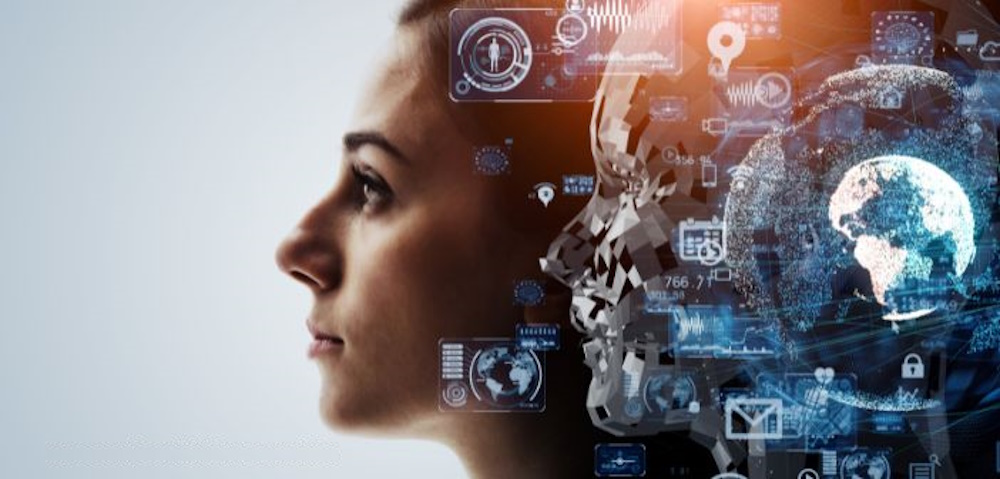 AI Organizations
AI Organizations
Ensuring that AI benefits society as a whole
Public interest AI organizations focus on ensuring that AI systems are designed, developed, and deployed in ways that benefit society as a whole, rather than primarily for profit or private interests.
These organizations often advocate for ethical AI practices, transparency, accountability, and equitable access to AI technologies. They work to promote sustainability, strengthen social inclusion, and create open systems that allow technology to be reused.
AI organizations play a crucial role in shaping the future of AI by ensuring that its production is aligned with the public interest. They often collaborate with governments, industry leaders, and other stakeholders to create policies and frameworks that promote ethical AI practices. Here's a list of prominent organizations working in AI for the public interest:

 Research and Ethics Organizations
Research and Ethics Organizations
OpenAI
Ensuring AI benefits all humanity, AI safety research
Projects: ChatGPT, DALL-E, safety initiatives.
To ensure that artificial general intelligence (AGI) benefits all of humanity. OpenAI conducts research and promotes the development of AI in a safe and beneficial manner.
Partnership on AI (PAI)
Fostering ethical AI development and responsible practices
Members: Google, Apple, Amazon, academia, and civil society.
To study and formulate best practices on AI technologies, to advance the public's understanding of AI, and to serve as an open platform for discussion and engagement about AI and its influences on people and society.
 Data Centers, Energy, and the
Environment: The new AI world order
Data Centers, Energy, and the
Environment: The new AI world order
Future of Life Institute (FLI)
Ensuring AI remains aligned with human values and safety
Projects: Open letters advocating AI regulation.
To catalyze and support research and initiatives for safeguarding life and developing optimistic visions of the future, including positive ways for humanity to steer its own course considering new technologies and challenges.
Center for AI and Digital Policy (CAIDP)
Promoting policies to ensure the ethical use of AI
To ensure that AI and digital policies promote a better society, more fair, more just, and more accountable. The center focuses on human rights, civil liberties, and democratic values.
The Alan Turing Institute
AI research with real-world applications and societal benefits
Founded in honor of Alan Turing, the Father of AI, the institute aims to make great leaps in data science and artificial intelligence research to change the world for the better. The institute focuses on research that has real-world applications and societal benefits.
 Human Rights and Justice Organizations
Human Rights and Justice Organizations
Algorithmic Justice League (AJL)
Fighting algorithmic bias and promoting equitable AI systems
To raise awareness about the impacts of AI, to equip advocates with empirical research, to build the voice and choice of communities, and to galvanize researchers, policy makers, and industry practitioners to mitigate AI harms and biases.
Data & Society Research Institute
Studying the implications of AI and big data on society
To address the social and cultural issues arising from data-centric technological development. The institute focuses on the implications of data and automation for society.
Electronic Frontier Foundation (EFF)
Protecting civil liberties in the digital world, including AI transparency
A nonprofit organization
defending civil liberties in the digital world.
AI Initiatives: Numerous public interest AI initiatives are being developed
globally, each with different objectives, methods, and frameworks. An
interactive world map provides an overview of these initiatives.
 A Recipie for Responsible AI: Data Privacy,
Software Development, and
Constitutional AI
A Recipie for Responsible AI: Data Privacy,
Software Development, and
Constitutional AI
Public Interest AI (PIAI)
Support outcomes that best serve the long-term survival and well-being of society
We understand Public Interest AI (PIAI) systems to be those AI systems that support those outcomes best serving the long-term survival and well-being of a social collective construed as a public.
Public Interest AI Research Group (HIIG)
Define and assess public interest AI
This group is developing an analysis procedure to define and assess public interest AI on three levels. They aim to create a concept that can guide public interest AI development in Europe and provide practical assistance to developers.
AI Community of Practice (AI CoP)
Network for government employees engaged in or interested in AI
A network for government employees interested in AI, with over 12,000 members from federal, state, and local government agencies. It guides the practical implementation of responsible AI within the U.S. government.
Access Now
Defending digital rights and privacy in the Age of AI
We urge governments and companies to follow binding, enforceable legal frameworks rooted in human rights law and principles, not voluntary or self-regulatory ethics-based approaches.
 Policy and Standards Organizations
Policy and Standards Organizations
IEEE Global Initiative on Ethics of Autonomous and Intelligent Systems
Setting ethical standards for AI systems
To ensure every stakeholder involved in the design and development of autonomous and intelligent systems is educated, trained, and empowered to prioritize ethical considerations so that these technologies are advanced for the benefit of humanity.
The European AI Alliance
Engaging stakeholders in shaping European AI policy
The European AI Alliance is an initiative of the European Commission to establish an open policy dialogue on Artificial Intelligence.
OECD AI Policy Observatory
Tracking global AI policies and fostering international collaboration
Contains policies, data and analysis for trustworthy artificial intelligence.
Center for Data Innovation
Focused on the intersection of data, technology, and public policy
The Center's focus is on how public policy can accelerate the successful development and deployment of AI throughout the economy and society, both by ensuring the necessary conditions are in place to facilitate innovation and by overcoming potential challenges in the way of technological advancement.
AI Now Institute
Social implications of AI, algorithmic bias, and regulation
Projects: Research reports on AI ethics and government policies.
The AI Now Institute produces diagnosis and actionable policy research on artificial intelligence.

 Safety and Alignment Research
Safety and Alignment Research
Anthropic
Developing aligned AI systems for human benefit
We believe AI will have a vast impact on the world. Anthropic is dedicated to building systems that people can rely on and generating research about the opportunities and risks of AI.
DeepMind Ethics and Society
Responsible AI development and deployment
As scientists developing AI technologies, we have a responsibility to conduct and support open research and investigation into the wider implications of our work.
Center for Human-Compatible AI (CHAI)
Technical research on safe AI aligned with human goals
CHAI's mission is to develop the conceptual and technical wherewithal to reorient the general thrust of AI research towards provably beneficial systems.
Doteveryone
Works with practitioners to help them understand and practice responsible technology
Doteveryone helps to provoke change in how tech is made and used so that it serves a fair, inclusive and sustainable democratic society. The Ada Lovelace Institute maintains the site to ensure Doteveryone's work remains in the public realm.
 Links
Links
techpolicy.press/the-three-levels-of-public-interest-ai/
policyreview.info/articles/analysis/introduction-special-issue-ai-systems-public-interest
aiethicist.org/ai-organizations
macfound.org/programs/field-support/technology-public-interest/